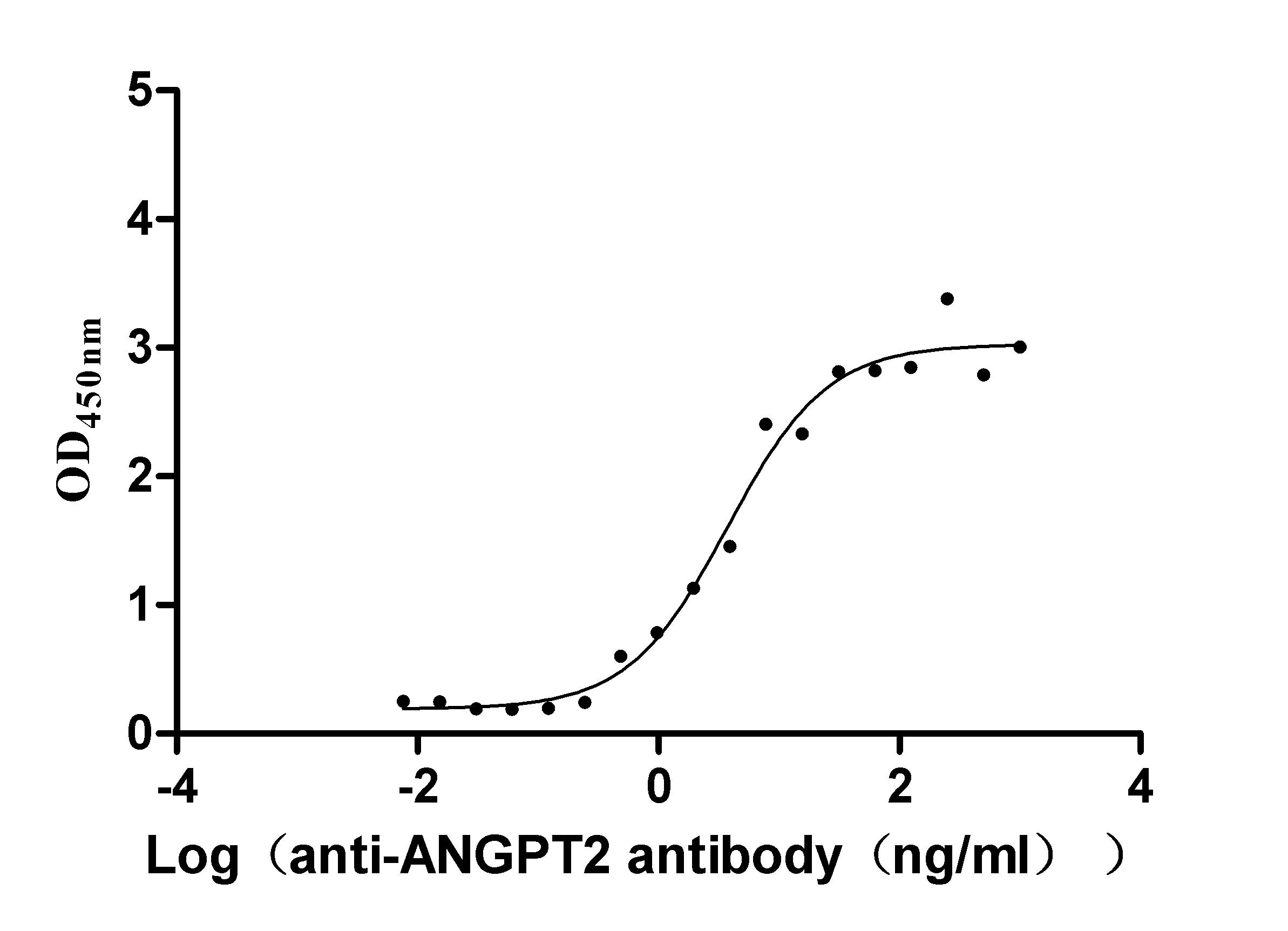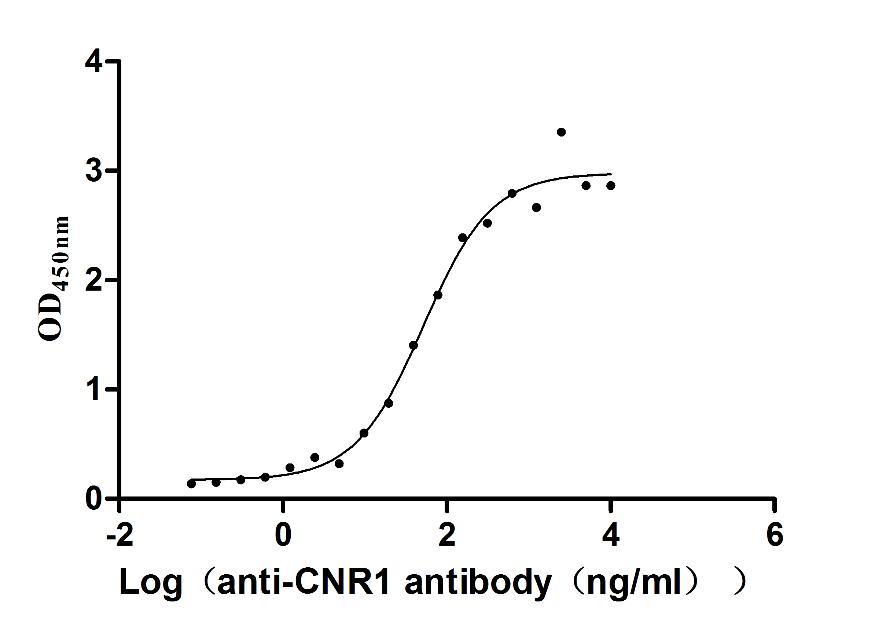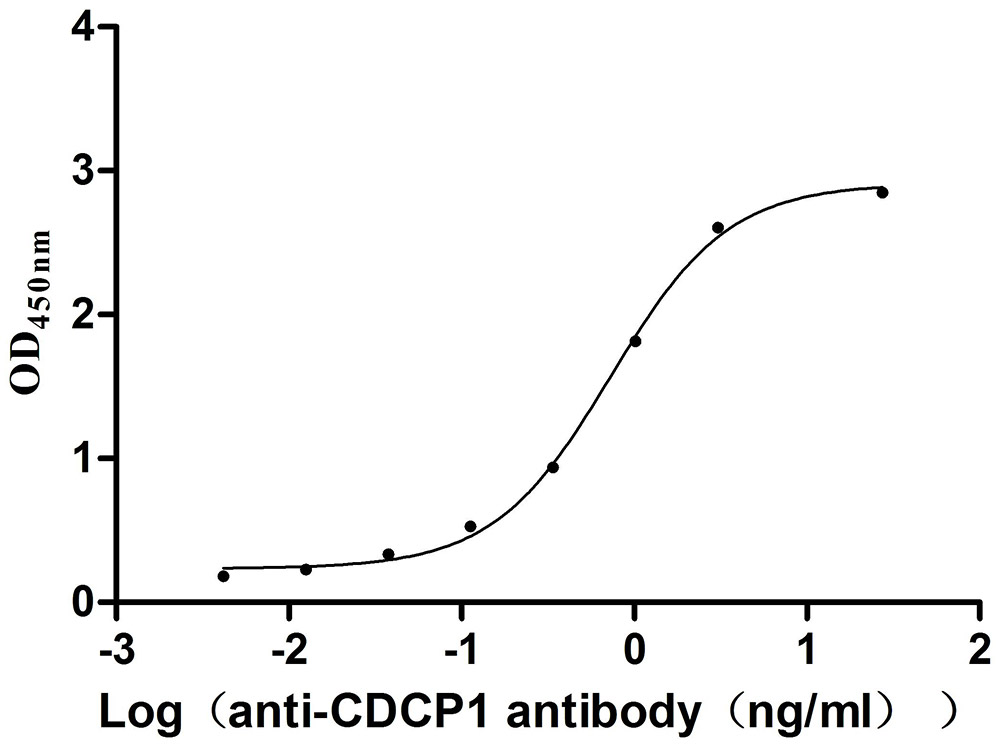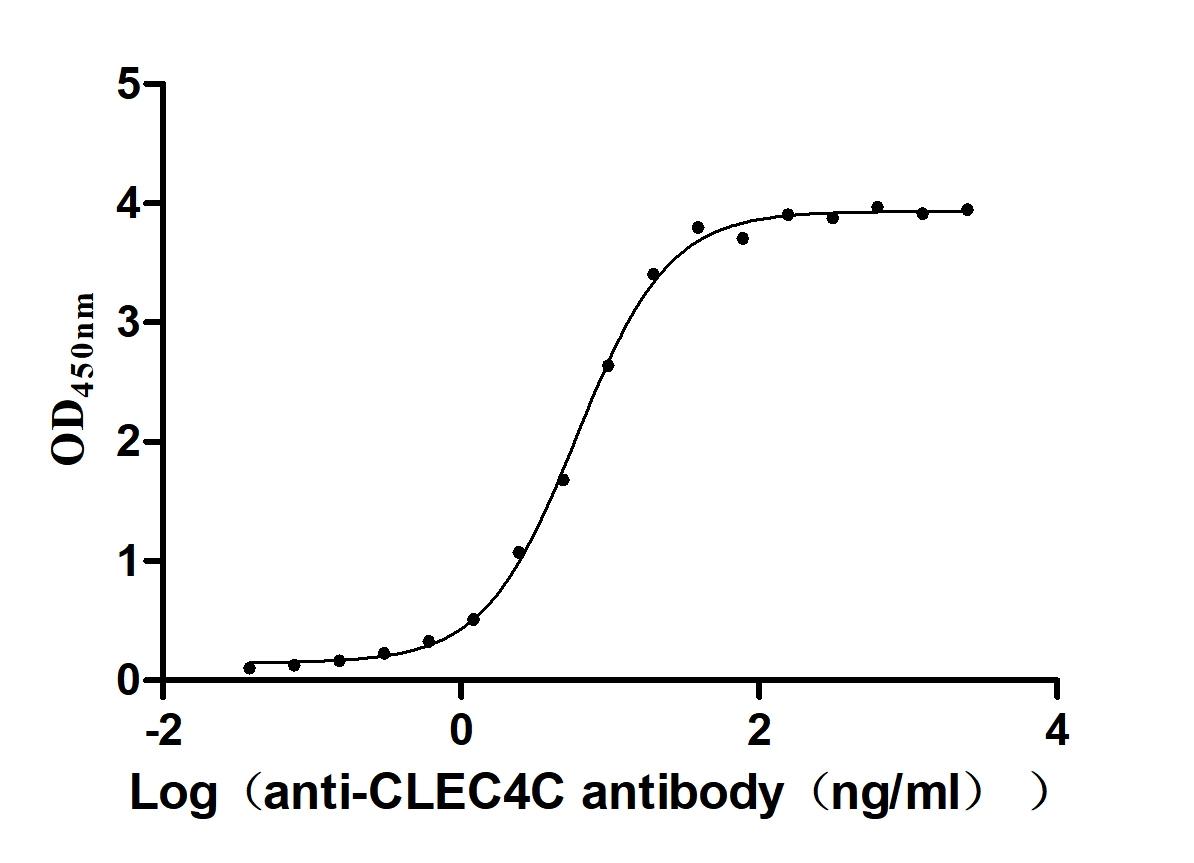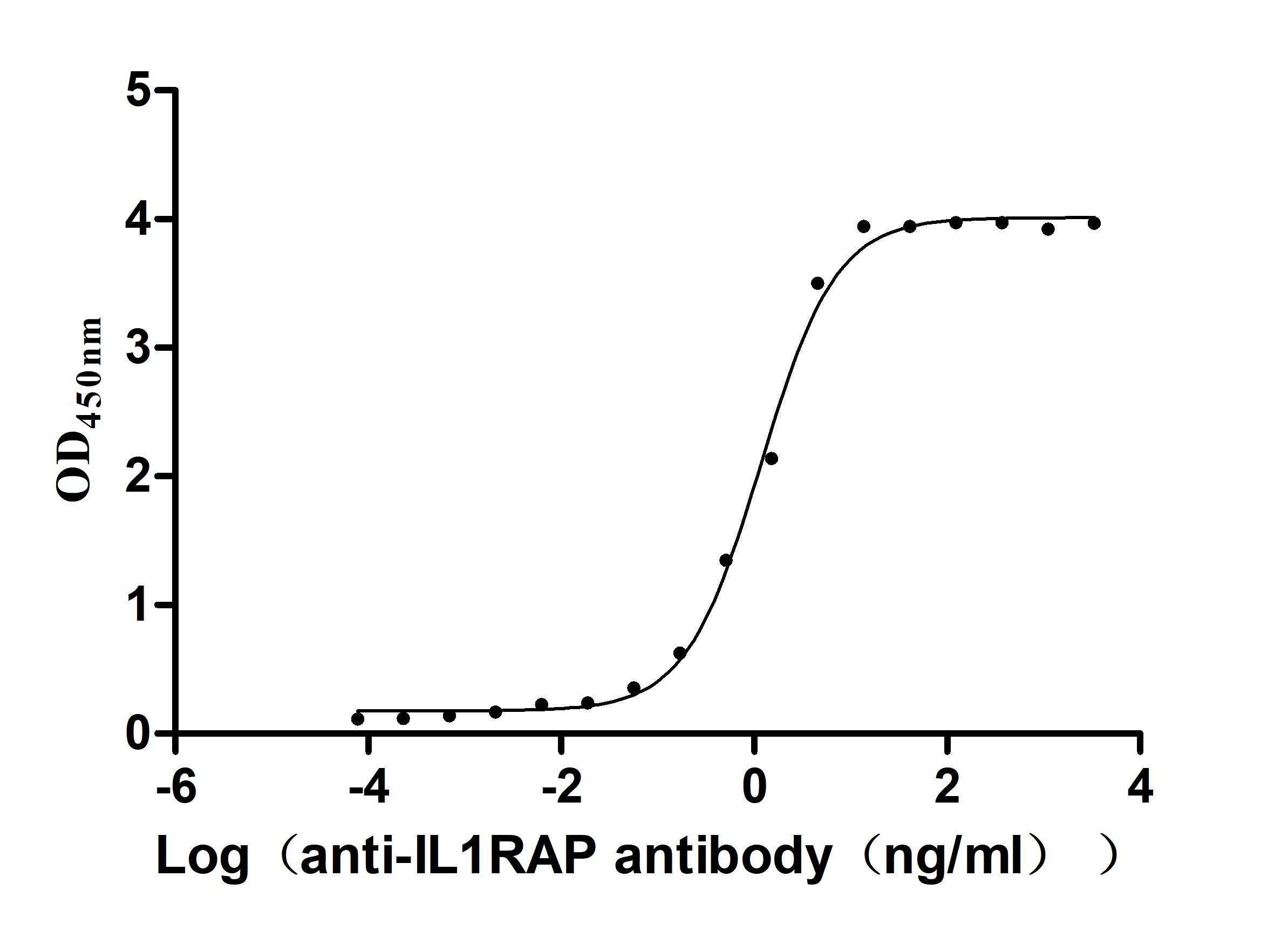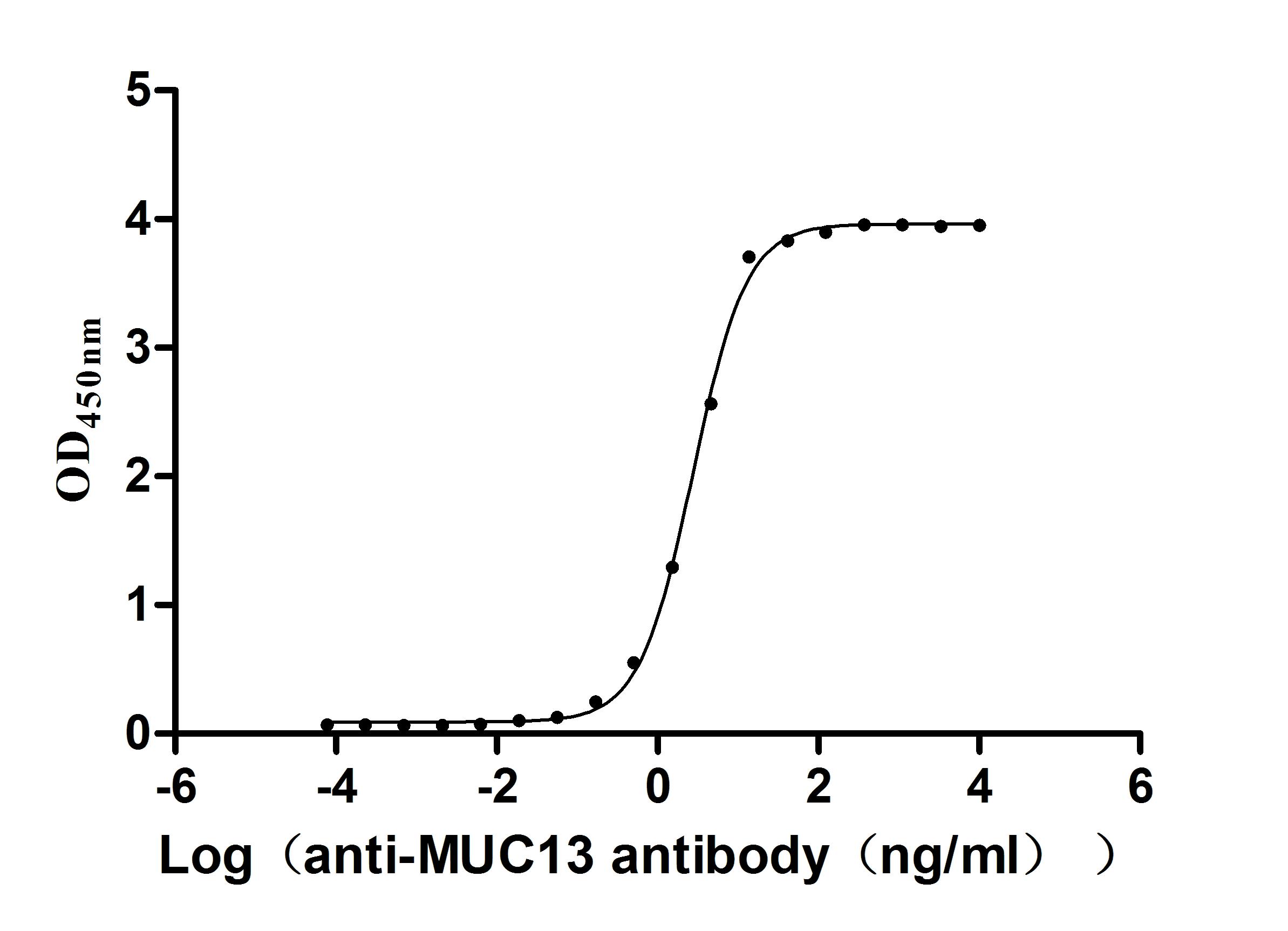Recombinant Mouse Proline-rich AKT1 substrate 1 (Akt1s1)
-
货号:CSB-YP883972MO
-
规格:
-
来源:Yeast
-
其他:
-
货号:CSB-EP883972MO
-
规格:
-
来源:E.coli
-
其他:
-
货号:CSB-EP883972MO-B
-
规格:
-
来源:E.coli
-
共轭:Avi-tag Biotinylated
E. coli biotin ligase (BirA) is highly specific in covalently attaching biotin to the 15 amino acid AviTag peptide. This recombinant protein was biotinylated in vivo by AviTag-BirA technology, which method is BriA catalyzes amide linkage between the biotin and the specific lysine of the AviTag.
-
其他:
-
货号:CSB-BP883972MO
-
规格:
-
来源:Baculovirus
-
其他:
-
货号:CSB-MP883972MO
-
规格:
-
来源:Mammalian cell
-
其他:
产品详情
-
纯度:>85% (SDS-PAGE)
-
基因名:
-
Uniprot No.:
-
别名:Akt1s1; PrasProline-rich AKT1 substrate 1; Proline-rich AKT substrate
-
种属:Mus musculus (Mouse)
-
蛋白长度:full length protein
-
表达区域:1-257
-
氨基酸序列MASGRPEELW EAVVGAAERF QARTGTELVL LTAAPPPPPR PGPCAYAAHG RGALAEAARR CLHDIAQAHR AATATRPPGP PPAPQPPSPA PSPPPRPALA REDEEEDEDE PTETETSGER LGGSDNGGLF MMDEDATLQD LPPFCESDPE STDDGSLSEE TPAGPTACPQ PPATALPTQQ YAKSLPVSVP VWAFKEKRTE ARSSDEENGP PSSPDLDRIA ASMRALVLRE AEDTQVFGDL PRPRLNTSDF QKLKRKY
-
蛋白标签:Tag type will be determined during the manufacturing process.
The tag type will be determined during production process. If you have specified tag type, please tell us and we will develop the specified tag preferentially. -
产品提供形式:Lyophilized powder
Note: We will preferentially ship the format that we have in stock, however, if you have any special requirement for the format, please remark your requirement when placing the order, we will prepare according to your demand. -
复溶:We recommend that this vial be briefly centrifuged prior to opening to bring the contents to the bottom. Please reconstitute protein in deionized sterile water to a concentration of 0.1-1.0 mg/mL.We recommend to add 5-50% of glycerol (final concentration) and aliquot for long-term storage at -20℃/-80℃. Our default final concentration of glycerol is 50%. Customers could use it as reference.
-
储存条件:Store at -20°C/-80°C upon receipt, aliquoting is necessary for mutiple use. Avoid repeated freeze-thaw cycles.
-
保质期:The shelf life is related to many factors, storage state, buffer ingredients, storage temperature and the stability of the protein itself.
Generally, the shelf life of liquid form is 6 months at -20°C/-80°C. The shelf life of lyophilized form is 12 months at -20°C/-80°C. -
货期:Delivery time may differ from different purchasing way or location, please kindly consult your local distributors for specific delivery time.Note: All of our proteins are default shipped with normal blue ice packs, if you request to ship with dry ice, please communicate with us in advance and extra fees will be charged.
-
注意事项:Repeated freezing and thawing is not recommended. Store working aliquots at 4°C for up to one week.
-
Datasheet :Please contact us to get it.
靶点详情
-
功能:Subunit of mTORC1, which regulates cell growth and survival in response to nutrient and hormonal signals. mTORC1 is activated in response to growth factors or amino acids. Growth factor-stimulated mTORC1 activation involves a AKT1-mediated phosphorylation of TSC1-TSC2, which leads to the activation of the RHEB GTPase that potently activates the protein kinase activity of mTORC1. Amino acid-signaling to mTORC1 requires its relocalization to the lysosomes mediated by the Ragulator complex and the Rag GTPases. Activated mTORC1 up-regulates protein synthesis by phosphorylating key regulators of mRNA translation and ribosome synthesis. mTORC1 phosphorylates EIF4EBP1 and releases it from inhibiting the elongation initiation factor 4E (eiF4E). mTORC1 phosphorylates and activates S6K1 at 'Thr-389', which then promotes protein synthesis by phosphorylating PDCD4 and targeting it for degradation. Within mTORC1, AKT1S1 negatively regulates mTOR activity in a manner that is dependent on its phosphorylation state and binding to 14-3-3. Inhibits RHEB-GTP-dependent mTORC1 activation. Substrate for AKT1 phosphorylation, but can also be activated by AKT1-independent mechanisms. May also play a role in nerve growth factor-mediated neuroprotection.
-
基因功能参考文献:
- Overexpression of PRAS40(T246A) in the Proliferative Compartment Suppresses mTORC1 Signaling, Keratinocyte Migration, and Skin Tumor Development PMID: 27349859
- PRAS40 inhibits mTORC1 hyperactivation and plays a key role in protecting cells against neurotoxic prion peptide-induced apoptosis. Thus, PRAS40 is a potential therapeutic target for prion disease. PMID: 28294542
- PRAS40 appears to reduce brain injury following ischemic stroke by converting cell signaling from Akt to mTOR PMID: 24583056
- PRAS40 treatment improves hepatic insulin sensitivity and reduces systemic hyperglycaemia in obese mice. PMID: 24408966
- PRAS40 phosphorylation acts as a molecular switch allowing mTORC1 activation during physiological growth, opening up unique possibilities for therapeutic regulation of the mTORC1 complex to mitigate pathologic myocardial hypertrophy by PRAS40 PMID: 23842089
- Naturally secreted amyloid-beta increases mammalian target of rapamycin (mTOR) activity via a PRAS40-mediated mechanism. PMID: 21266573
- These results suggest that a reduction in PRAS40 specifically impairs myoblast protein synthesis, cell cycle, proliferation and differentiation to myotubes. PMID: 20464060
- PRAS phosphorylation and its interaction with pAkt and 14-3-3 might play an important role in neuroprotection mediated by NGF in apoptotic neuronal cell death after transient focal cerebral ischemia PMID: 14973226
- PRAS40 is an important regulator of insulin sensitivity of the Akt-mTOR pathway and a potential target for the treatment of cancers, insulin resistance and hamartoma syndromes. PMID: 17277771
- PRAS40 regulates mTORC1 kinase activity by functioning as a direct inhibitor of substrate binding. PMID: 17510057
- The protein product encoded by 1110012J22 gene is proline-rich substrate of Akt which also binds to 14-3-3. A proposed name for this protein is thus PRAS40, for proline-rich substrate of Akt of 40 kDa. PMID: 12524439
显示更多
收起更多
-
亚细胞定位:Cytoplasm, cytosol. Note=Found in the cytosolic fraction of the brain. Colocalizes with cortical neurons following ischemic/reperfusion injury.
-
数据库链接:
KEGG: mmu:67605
STRING: 10090.ENSMUSP00000049764
UniGene: Mm.148007
Most popular with customers
-
Recombinant Dog Angiopoietin-2 (ANGPT2) (Active)
Express system: Mammalian cell
Species: Canis lupus familiaris (Dog) (Canis familiaris)
-
Recombinant Human Cannabinoid receptor 1 (CNR1)-VLPs (Active)
Express system: Mammalian cell
Species: Homo sapiens (Human)
-
Recombinant Mouse CUB domain-containing protein 1 (Cdcp1), partial (Active)
Express system: Mammalian cell
Species: Mus musculus (Mouse)
-
Recombinant Human Cytotoxic and regulatory T-cell molecule (CRTAM), partial (Active)
Express system: Mammalian cell
Species: Homo sapiens (Human)
-
Recombinant Macaca fascicularis C-type lectin domain family 4 member C(CLEC4C), partial (Active)
Express system: Mammalian cell
Species: Macaca fascicularis (Crab-eating macaque) (Cynomolgus monkey)
-
Recombinant Human Interleukin-1 receptor accessory protein (IL1RAP), partial (Active)
Express system: Mammalian cell
Species: Homo sapiens (Human)
-
Recombinant Human Mucin-13(MUC13),partial (Active)
Express system: yeast
Species: Homo sapiens (Human)


